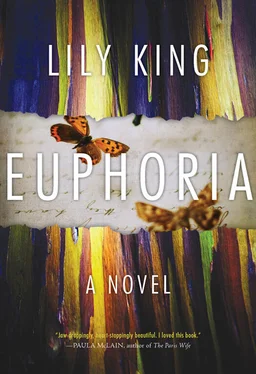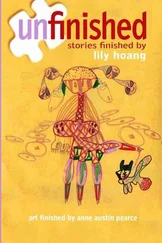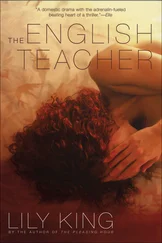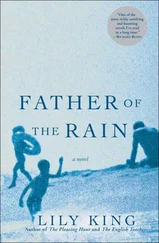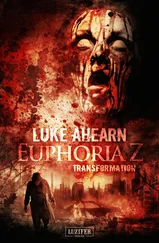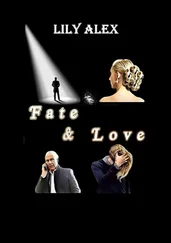‘Good day, Fenwick.’
‘Good day to you, mum,’ he said, straightening up.
The other men stopped their work to watch them.
He peeked into her basket. He’d taken off his shirt, and his chest was shiny with sweat and stippled with bugs and flecks of wood pulp. ‘Ah, the usual bribes, er, enticements, I see.’
‘They like a sweet canned peach at this hour.’
He was an athletic man, so unlike the men in her family. He’d been a rugby player at school. His father told her, the one time they’d met, that Fen could have played for the Wallabies if he’d wanted to.
‘Don’t we all,’ he said, leaning in and peering down her dress. ‘A nice round white peach.’ He reached in, but she blocked him. The men behind him wheezed with laughter.
He had begun to do this lately, perform for them in this way.
‘What’s going on today?’
‘What do you mean?’
‘Something’s going on. Have they said anything?’
He didn’t know and didn’t care. He kissed her and the men slapped the canoe and cackled.
‘Get some work done, Mr. Show-off.’
She took the turn up the women’s road and when she turned back, he was bent over the canoe again. There was no notebook nearby. He hadn’t even brought it.
Fen didn’t want to study the natives; he wanted to be a native. His attraction to anthropology was not to puzzle out the story of humanity. It was not ontological. It was to live without shoes and eat from his hands and fart in public. He had a quick mind, a photographic memory, and a gift for both poetry and theory — he had wooed her with these qualities night and day for six weeks on the boat from Singapore to Marseille — but they didn’t seem to give him much pleasure. His interest lay in experiencing, in doing. Thinking was derivative. Dull. The opposite of living. Whereas she suffered through the humidity and the sago and the lack of plumbing only for the thinking. As a little girl in bed at night, when other girls were wishing for ponies or roller skates, she wished for a band of gypsies to climb up into her window and take her away with them to teach her their language and their customs. She imagined how, after a few months, they would return her home and after the hugs and tears she would tell her family all about these people. Her stories would go on for days. The pleasurable part of the fantasy was always in the coming home and relating what she had seen. Always in her mind there had been the belief that somewhere on earth there was a better way to live, and that she would find it.
In The Children of Kirakira she described for a Western audience the way one tribe in the Solomon island of Makira raised their children. In the final chapter, she made a few brief comparisons between Kirakira and American child-rearing customs. She submitted her manuscript not to a university press but to William Morrow, where it was quickly accepted. Mr. Morrow suggested she expand those comparisons into a couple of chapters at the end, which she did, and happily, for it was what interested her most, but it became the sort of opining that hadn’t been done in ethnographical writing before. Americans, she discovered upon publication, had never considered the possibility of another way to raise children. They were astounded by Kirakira children paddling in boats alone at age three, still sucking on their mothers’ breasts at age five, and, yes, disappearing into the forest or down onto the beach with a lover of either sex at age thirteen. Her research had been a bit too graphic for a general readership, and her theory that adolescence didn’t have to be full of the misery and rebelliousness it was in America got lost in the uproar. Fen liked the money the book brought in, but he had planned on his name becoming a household word, not hers. But he hadn’t written anything more than a short monograph about his Dobu.
In her grant proposal, she claimed that she would continue her inquiry of child-rearing in primitive cultures, but the Tam were tempting her with something even more enticing. At first she dared not hope, but the data kept coming: taboo reversals, sisters-in-law on friendly terms, emphasis on female sexual satisfaction. Yesterday Chanta explained to her that he could not go to visit his sick nephew in the far hamlet because his wife’s vulva would go wandering if he did. They were grand on the word vulva. When Nell asked if an elderly widow would ever marry again, several people said at the same time: ‘Has she not a vulva?’ Girls themselves decided whom they would marry, and when. Fen disagreed with every conclusion she drew on this topic. He said she was blinded by her desire to see them this way, and when she laid out her evidence he said whatever power the women had was temporary, situational. The Tam had been chased out by the Kiona and only recently restored to their lake by the Australian government. Many of their men had been killed or calaboosed or blackbirded, he said. Whatever she saw was a temporary aberration.
She decided to go to the last house first today. She was often depleted by the time she got there, and her notes on those families were always less substantial than the others.
‘Baya ban,’ a little girl called from the first house.
‘Baya ban, Sema.’
‘Baya ban, Nell-Nell.’
‘I’m not coming …’ Nell couldn’t finish the sentence. She didn’t know the word for yet. ‘Fumo,’ she said finally. Later.
‘Baya ban, Nell-Nell.’
No one seemed to be home at the other houses she passed. No smoke rose from their roofs, no one leaned out of the doorway to call a greeting. Some children were playing a game behind the houses. She could hear their bodies snapping through the brush and then a collective scream when someone was caught. At first her presence had stopped their games. The same children who played in her house in the morning rushed to hide beneath the houses, spying, giggling, shrieking even. But now they didn’t notice, didn’t even come to see what was in her basket for them. Now they knew she would come to each of their houses and they would see the goodies later.
From the last house on the women’s road smoke was rising. All five fireplaces were being used, and she could hear heavy footfall, more like running than dancing. She heard murmurs but no words. Instead of calling out from below first, she climbed up the ladder without a word. The running footsteps grew louder and the whole house shook. People seemed to be yelling at each other in a loud whisper.
Nell-Nell di lam, she said before she pushed the bark cloth aside and stepped in.
It was dim, all the blinds drawn, and she could see little. There was a high-pitched clattering at the back half of the long house, shells or stones being moved around and women whispering and their bare feet thudding quickly across the floorboards. Malun greeted her and offered her guava juice as she always did. Her eyes adjusted and she could make out mosquito bags laid out down the length of the house, but only the long ones, none for the children. Women, thirty or so, many more than usual, were strewn on the floor. Some had torn nets or half-finished baskets in their laps, but many were doing nothing, which Nell had seen plenty of times among the men but never among the women. The women here were never idle. Some raised their heads and whispered their greetings to her.
Malun returned with the drink. Her face was bathed in sweat. The house held a humidity far beyond the normal tropical damp. As she handed Malun things from her basket, she watched her carefully. Her pupils were dilated and tears of sweat were running down her stomach. She had an odd, enigmatic expression on her face and seemed to be trying hard to concentrate. Nell looked for signs of betel nut, lime powder, and mustard pods — a potent combination she knew the Mumbanyo used for a strong high — but saw nothing. Or perhaps they had some other drug. They were high on something, she knew that much. Some seemed unable to keep a smile from twisting up the sides of their mouths, like her brother at the dinner table after he’d snuck off with a bottle of her father’s gin. Her own sweat prickled her face and thighs. She’d worked through her own illness and injury; she’d worked with people who only told her lies, who chatted and laughed through every question, who ignored her, teased her, imitated her. It was all, all of it, part of the job, but this odd conspiracy of sweaty women seemed to press at a tender spot deep in her. She picked up her basket and left. It was silent as she climbed down, but when she was five steps away the house exploded with laughter.
Читать дальше
